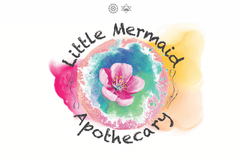TEN WAYS TO SPOT ANTI-VITAMIN BIASES IN A SCIENTIFIC STUDY
by Andrew Saul "The Doctor Yourself Newsletter"
1. Where's the beef? How much of the original study is quoted in the media? Are you just getting factoids, or are data provided? Has the journalist writing about the subject actually read the original paper?
2. What exactly was studied, and how? Was it an IN VITRO (test-tube) study or an IN VIVO (animal) study? Was there a CLINICAL STUDY on people, or is its application to real life a matter of conjecture?
3. Follow the Money. Who paid for the study? Cash from food processors, pharmaceutical giants, and other deep pockets decides what gets studied, and how. It is very difficult, if not impossible, for researchers to present findings that embarrass their financial backers. Published research will often indicate sources of funding, possibly at the end of the paper in an acknowledgements paragraph. If not, correspondence addesses of principle authors are invariably provided.
Write and ask.
4. Check the dosages. Any vitamin C study using less than 2,000 mg a day is a waste of time. Any vitamin E study employing less than 400 International Units (I.U.) is a waste of time. Any study using less than 1,000 mg niacin a day is a waste of time. All low-dose studies are set up to fail. Low doses of vitamins do not cure major diseases. Large doses cure diseases.
5. Check the form of supplement used. Was the vitamin used in the study natural or synthetic? Any carotene study using the synthetic form of beta-carotene only is a waste of time. Any vitamin E study using the synthetic DL-alpha form is a waste of time.
6. Use the Pauling Principle: read the entire study and interpret the data for yourself. Do not rely on the summary and/or conclusions of the study authors. As Linus Pauling pointed out repeatedly, many researchers miss, or dismiss, the statistical significance of their own work. Such behavior may be human error, or it may be politically motivated. Beware of editorializing.
7. Beware of Pauling-bashers. If a media article is critical about twice Nobel prize-winning Linus Pauling, you can be confident it has been spin-doctored.
8. Watch for these throw-away slams against supplements:
"You get all the vitamins you need form your daily diet."
"Vitamins are dangerous if you take too many of them."
"Excess vitamins are wasted."
"More research is needed before supplements can be recommended."
"There is no scientific support for large vitamin doses."
9. Watch for pontifical public recommendations at the end of the article such as:
"Vitamins can do some good things, but can do some bad things as well."
"You are better off not popping vitamin pills."
"Just eat a balanced diet."
"If you take vitamins, take no more than the US RDA."
10. Use the media backwards. The more headlines about a particular study, the more politically charged the subject and the less likely that the reporting, or the original study, is positive towards vitamins. Negative news sells newspapers, and magazines, and gets lots of viewers. Positive drug studies do get headlines, of course.
Positive vitamin studies do not. Is this a conspiracy? You mean with shady people all sitting around a shaded table in a darkened back room? Of course not. It is nevertheless an enormous public health problem with enormous consequences. Consider what might be called Saul's Law of the Media: "Press and television coverage of a vitamin study is inversely proportionate to the study's clinical usefulness." In other words, the more media hoopla, the worse the research. Truly valuable research does not scare people; it helps people get well. There are over 3,000 scientific references at Doctor Yourself dot com for people who share in this goal.
Reprinted from the book FIRE YOUR DOCTOR, copyright 2001 and prior years by Andrew Saul, Number 8 Van Buren Street, Holley, New York 14470

